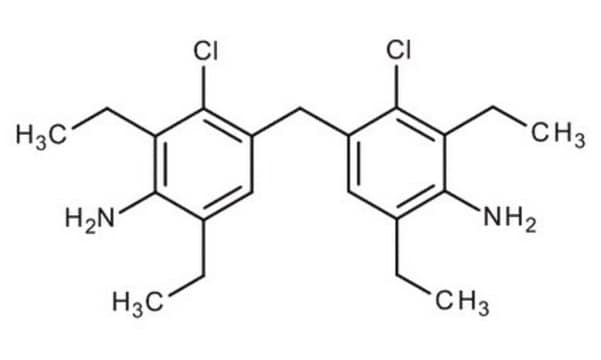8.14874
2-Methyl-2-butene
(mixture of isomers) for synthesis
Synonym(s):
2-Methyl-2-butene, Isoamylene, Trimethylethylene
About This Item
Recommended Products
vapor pressure
513 hPa ( 20 °C)
Quality Level
Assay
83.0-88.0% (GC)
form
liquid
autoignition temp.
290 °C
potency
1000-1700 mg/kg LD50, oral (Rat)
>2000 mg/kg LD50, skin (Rat)
expl. lim.
1-9 % (v/v)
kinematic viscosity
0.29 cSt(20 °C)
mp
-134 °C
transition temp
flash point -45 °C
density
0.66 g/cm3 at 20 °C
storage temp.
2-8°C
SMILES string
C(C)C(=C)C
InChI
1S/C5H10/c1-4-5(2)3/h2,4H2,1,3H3
InChI key
MHNNAWXXUZQSNM-UHFFFAOYSA-N
Application
- Palladium-Catalyzed Pentenylation of Indoles: A study demonstrated the use of 2-Methyl-2-butene in palladium-catalyzed intermolecular dehydrogenative pentenylation of indoles, offering a novel pathway in synthetic chemistry for creating complex molecules (Zhang et al., 2024).
- Asynchronous Concerted Mechanism: Research explored an asynchronous concerted mechanism in Lewis acid-mediated carbonyl-olefin [2+2] cycloaddition involving 2-Methyl-2-butene, providing insights into reaction dynamics and stereochemical outcomes in organic synthesis (Li et al., 2023).
Analysis Note
Density (d 20 °C/ 4 °C): 0.658 - 0.663
2-Methyl-1-buten (GC, area%): 12.0 - 17.0 % (a/a)
Identity (IR): passes test
Signal Word
Danger
Hazard Statements
Precautionary Statements
Hazard Classifications
Acute Tox. 4 Oral - Aquatic Chronic 2 - Asp. Tox. 1 - Carc. 2 - Flam. Liq. 1 - Muta. 2 - Skin Irrit. 2 - STOT SE 3
Target Organs
Central nervous system
Storage Class Code
3 - Flammable liquids
WGK
WGK 2
Flash Point(F)
-49.0 °F
Flash Point(C)
-45 °C
Certificates of Analysis (COA)
Search for Certificates of Analysis (COA) by entering the products Lot/Batch Number. Lot and Batch Numbers can be found on a product’s label following the words ‘Lot’ or ‘Batch’.
Already Own This Product?
Find documentation for the products that you have recently purchased in the Document Library.
Our team of scientists has experience in all areas of research including Life Science, Material Science, Chemical Synthesis, Chromatography, Analytical and many others.
Contact Technical Service









